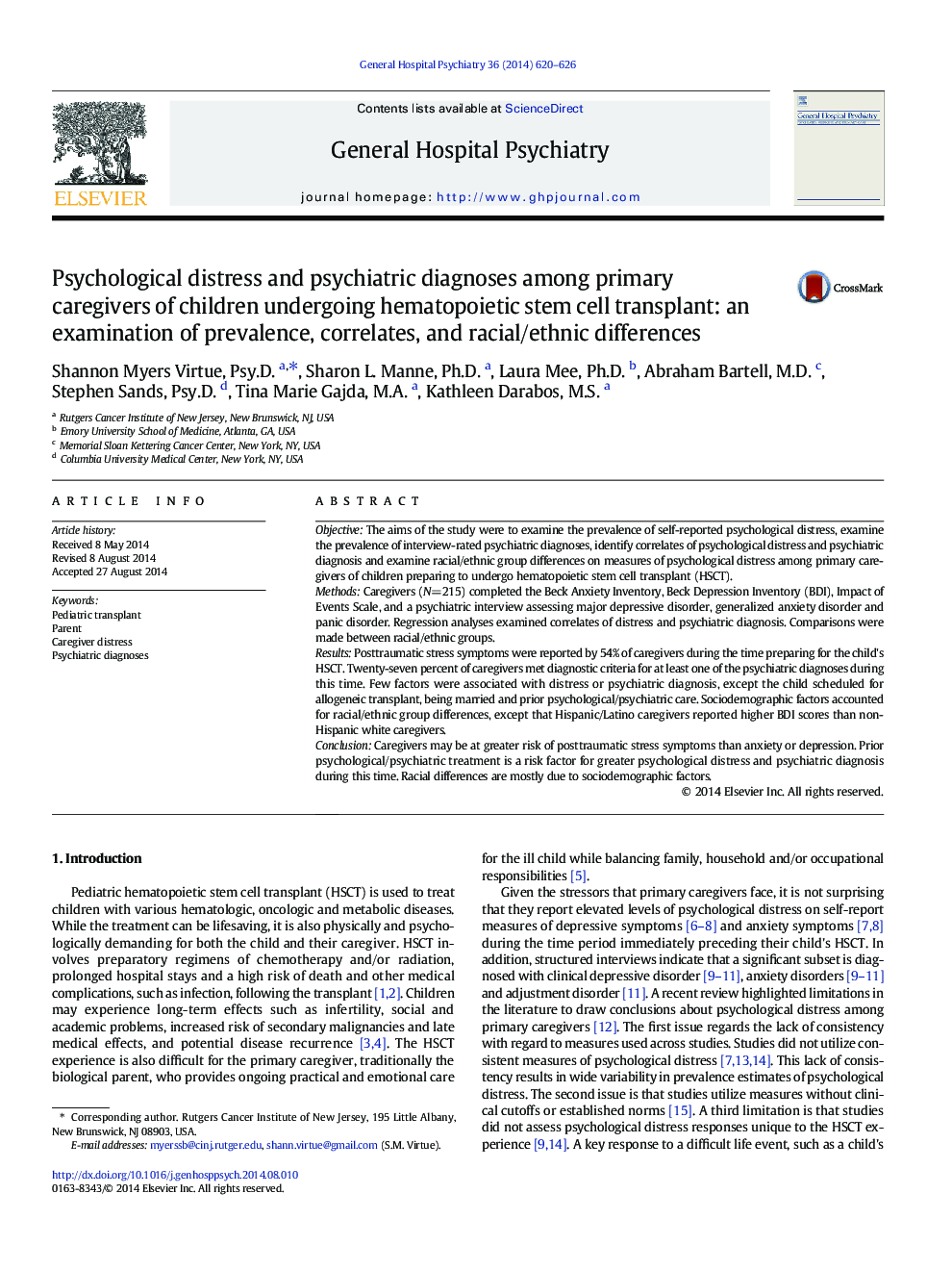| Article ID | Journal | Published Year | Pages | File Type |
|---|---|---|---|---|
| 6082022 | General Hospital Psychiatry | 2014 | 7 Pages |
ObjectiveThe aims of the study were to examine the prevalence of self-reported psychological distress, examine the prevalence of interview-rated psychiatric diagnoses, identify correlates of psychological distress and psychiatric diagnosis and examine racial/ethnic group differences on measures of psychological distress among primary caregivers of children preparing to undergo hematopoietic stem cell transplant (HSCT).MethodsCaregivers (N=215) completed the Beck Anxiety Inventory, Beck Depression Inventory (BDI), Impact of Events Scale, and a psychiatric interview assessing major depressive disorder, generalized anxiety disorder and panic disorder. Regression analyses examined correlates of distress and psychiatric diagnosis. Comparisons were made between racial/ethnic groups.ResultsPosttraumatic stress symptoms were reported by 54% of caregivers during the time preparing for the child's HSCT. Twenty-seven percent of caregivers met diagnostic criteria for at least one of the psychiatric diagnoses during this time. Few factors were associated with distress or psychiatric diagnosis, except the child scheduled for allogeneic transplant, being married and prior psychological/psychiatric care. Sociodemographic factors accounted for racial/ethnic group differences, except that Hispanic/Latino caregivers reported higher BDI scores than non-Hispanic white caregivers.ConclusionCaregivers may be at greater risk of posttraumatic stress symptoms than anxiety or depression. Prior psychological/psychiatric treatment is a risk factor for greater psychological distress and psychiatric diagnosis during this time. Racial differences are mostly due to sociodemographic factors.
